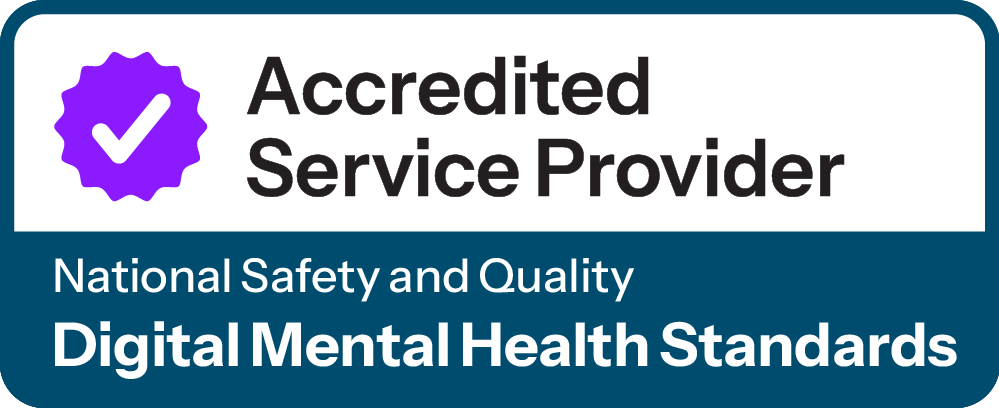ReachOut’s nationally representative survey of 1000 people, aged between 14 and 25, also found that despite high levels of exam stress, 66 per cent of students said they do not seek external help to manage this stress.
Ashley de Silva, CEO of ReachOut, said that ReachOut is encouraging young people to have plans in place to manage exam-related stress this year and to seek help early if they are not coping with the pressure.
“Preparing for exams is about doing your best and working towards achieving a result that you are happy with. While some study stress is normal and can help improve performance, it can grow into a major problem. So, whilst trying to get the balance right between studying and self-care can be tricky, it is key to keeping stress at a manageable level,” he said.
“We want to encourage students feeling like their stress is at an unhealthy level and affecting other parts of their life to seek support, and that could be talking to a trusted adult, their GP or visiting ReachOut.com.”
“We want to remind young people that they’re not alone at exam time and that there are many potential pathways to achieve their future goals,” he said.
The survey also showed that internal pressure to succeed and concern about the future are key drivers of exam stress. Sixty-eight per cent of young people said exam stress was driven by an self-generated pressure to succeed. Almost 40 per cent said that worrying about finding a job was also feeding their stress while one third were concerned about securing their preferred tertiary course.
ReachOut has a range of resources to help young people with study plans and to get additional help if they need it, as well as forums where young people can share stories and hear from others with similar experiences.
While most young people do not seek external help, the past two ReachOut surveys show a positive trend in the number of students calling on others when stress levels rise. The number of students seeking external support has increased from 28 per cent to 34 percent in the last two surveys.
Parents and carers also play a key role in helping their young person cope with exam stress, and there is practical and actionable support available at ReachOut Parents. The survey showed that two-thirds of young people who got help for their exam stress sought help from a parent.
Students can head to ReachOut.com to access articles, videos, quizzes and tips to help them cope with exam stress.
Parents can head to ReachOut.com/parents for information about how to support their young person when it comes to exam stress.
ENDS
Media contact
Tessa Anderssen / 0411 708 587 / tessa@reachout.com
ReachOut content
Click here to see ReachOut’s content about exam stress
Key statistics
- 66% of students are experiencing worrying levels of exam stress.
- 10% of students are experiencing extreme levels of exam stress.
- 66% of students do not seek external help for exam stress.
- 68% of students say their stress was driven by self-generated pressure to succeed.
- 40% of students say concern about finding a job was feeding their exam stress.
- 34% of students say concern about securing their preferred tertiary course was feeding their exam stress.
Exam stress tips for young people 
- Tackle procrastination head on. Instead of bingeing a whole series because your study load is freaking you out, try breaking it down into small chunks. After you’ve finished each chunk, reward yourself with one episode.
- Set up a study space that’s comfortable and relaxing so you can focus on your revision. Try putting up a quote or a picture that keeps you motivated.
- It’s important to maintain a balance in your life. Keep in touch with your friends and make time for catch ups. When you see your friends or talk to them online don’t be afraid to let them know if you’re feeling overwhelmed at the moment.
- Relaxation and mindfulness can help you to focus, so experiment with what suits you best. Going for a walk without your phone, cooking or downloading the ReachOut Breathe app can be good places to start.
- If your exam stress is impacting your everyday life and becoming unhealthy speak to a trusted adult, your GP or a mental health professional. Head to ReachOut to learn more about exam stress.
Exam stress tips for parents
- Find an opportunity to talk about exams with your teenager so that you better understand what stress looks like for them and can support them find coping strategies. Some parents find it easier to talk to their teen in the car, where it’s private and you’re both looking straight ahead.
- Help your teenager find time to do things they find relaxing. That could be making time for exercise or encouraging them to help you cook a healthy meal for the family.
- Reflect on your own expectations and how they might be impacting your teenager.
- Look out for signs that your teenager might be overwhelmed. If they’re having trouble sleeping or finding it hard to connect with others it might be time to seek help.
- Look after yourself so that you’re in a better place to help support your teenager if they’re experiencing exam stress. ReachOut Parents can be a good place to start including articles, tips, parent forums and one-on-one support delivered over the phone.
About ReachOut Australia
ReachOut has been changing the way people access help since launching as the world’s first online mental health service nearly 20 years ago. Everything they create is based on the latest evidence and designed with experts, and young people or their parents. This is why ReachOut’s digital self-help tools are trusted, relevant and easy to use.
Available for free anytime and pretty much anywhere, ReachOut is accessed by 200,000 people in Australia every month. That’s more than 2.4 million each year.






